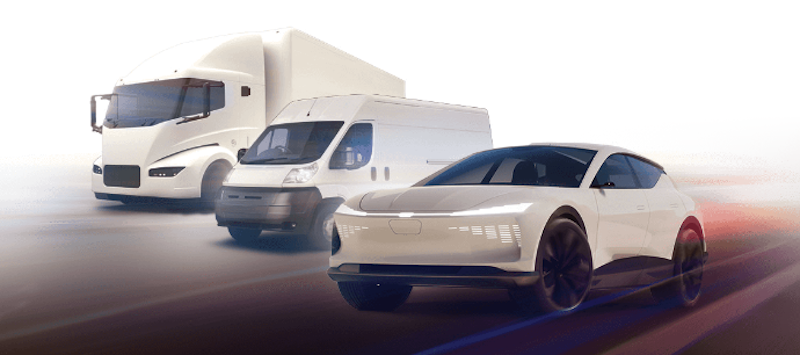Science
Sonatus Unveils AI Director to Transform In-Vehicle Technology

Sonatus, a vehicle software company based in Sunnyvale, has launched the Sonatus AI Director, a platform aimed at enabling automakers to implement artificial intelligence directly within vehicles. This innovative toolchain is designed for model training, validation, optimization, and deployment, shifting the focus from traditional cloud-based systems to on-board electronic control units. With this approach, car manufacturers can achieve faster response times and reduce operational costs.
The automotive AI market is projected to grow significantly, reaching an estimated $46 billion annually by 2034. The Sonatus AI Director seeks to simplify the integration of AI technologies, with promises to cut deployment times from “months to weeks or days.” According to Jeff Chou, CEO and co-founder of Sonatus, “Artificial intelligence is creating opportunities for new ideas that were never before possible in vehicles.” He emphasizes that the platform empowers original equipment manufacturers (OEMs) to integrate diverse AI algorithms seamlessly, fostering an ecosystem that connects cloud computing, hardware, and AI developers.
Industry Partnerships Fueling Innovation
The launch of the Sonatus AI Director is supported by several prominent technology partners, including chipmaker NXP, computing IP leader Arm, and cloud provider AWS. Subsidiaries such as Compredict, Qnovo, Smart Eye, and VicOne also play a critical role in showcasing how their technologies benefit from the platform.
Stefan Hassels, head of product at Compredict, stated, “At Compredict, we are redefining how software can replace physical vehicle components. Integrating our AI-driven Virtual Headlight Leveling Sensor with the Sonatus AI Director platform enables us to reach OEMs more quickly, scale our models while safeguarding our intellectual property, and optimize performance across various ECUs – all while delivering OEMs up to $20 in bill of materials cost savings per vehicle.”
The platform not only supports a variety of machine learning models, including neural networks and large language models, but also facilitates the protection of intellectual property for suppliers and AI vendors. This capability is essential as the automotive industry increasingly shifts towards software-defined vehicles.
Driving the Future of Automotive AI
As the landscape of automotive technology evolves, the pressure on manufacturers to adopt AI solutions intensifies. Alex Oyler, consulting director at SBD Automotive, remarked, “The evolving technology and competitive landscape are compelling automakers to transition towards software-defined vehicles and make greater use of AI to improve their business.” He noted that innovative tools like the Sonatus AI Director can expand the use of in-vehicle AI, which is essential for delivering adaptive and intelligent driving experiences that keep OEMs competitive on a global scale.
The introduction of the Sonatus AI Director marks a significant step in the integration of AI technologies within vehicles. By streamlining deployment and enhancing capabilities, Sonatus positions itself at the forefront of a rapidly evolving industry, ready to meet the demands of tomorrow’s automotive market.
-

 Technology4 months ago
Technology4 months agoDiscover the Top 10 Calorie Counting Apps of 2025
-

 Health2 months ago
Health2 months agoBella Hadid Shares Health Update After Treatment for Lyme Disease
-

 Health3 months ago
Health3 months agoErin Bates Shares Recovery Update Following Sepsis Complications
-

 Technology3 weeks ago
Technology3 weeks agoDiscover 2025’s Top GPUs for Exceptional 4K Gaming Performance
-

 Technology4 months ago
Technology4 months agoDiscover How to Reverse Image Search Using ChatGPT Effortlessly
-

 Technology2 months ago
Technology2 months agoElectric Moto Influencer Surronster Arrested in Tijuana
-

 Technology4 months ago
Technology4 months agoMeta Initiates $60B AI Data Center Expansion, Starting in Ohio
-

 Technology4 months ago
Technology4 months agoRecovering a Suspended TikTok Account: A Step-by-Step Guide
-

 Health4 months ago
Health4 months agoTested: Rab Firewall Mountain Jacket Survives Harsh Conditions
-

 Lifestyle4 months ago
Lifestyle4 months agoBelton Family Reunites After Daughter Survives Hill Country Floods
-

 Technology3 months ago
Technology3 months agoUncovering the Top Five Most Challenging Motorcycles to Ride
-

 Technology4 weeks ago
Technology4 weeks agoDiscover the Best Wireless Earbuds for Every Lifestyle





















